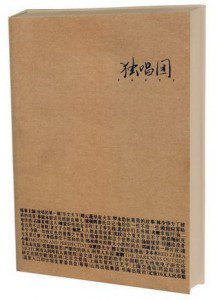12 Jan 2011 | Index Index, Middle East and North Africa, minipost
According to opposition website rahesabz a think tank close to the Iranian security apparatus has published a leaflet containing a list of publishers, writers and translators deemed as “usurpers” intent on overthrowing the regime. The publishers listed include Cheshmeh, Ghoghnous, Akhtaran and Kavir and are well known for publishing works by reformist scholars and writers. Among the writers listed in the document are dissident figures such as Emadeddin Baghi, Ramin Jahan Begloo and poet Simin Behbahani.
11 Jan 2011 | Index Index, Middle East and North Africa, minipost
Brazilian author Paulo Coelho has published a message on his blog claiming his books have been banned in Iran.
The Brazilian author has not been given the specific reasons for this action. However he has said that he has been using social networks to support Arash Hejazi.
Hejazi is the doctor and translator of Coelho’s books to Farsi, who appeared in the footage of Neda Agha-Soltan’s death during the demonstrations following Iran’s disputed presidential elections.
6 Jan 2011 | Uncategorized
The publication of a new edition of Mark Twain’s Adventures of Huckleberry Finn sans “offensive” words is beyond bizarre.
Professor Alan Gribben, whose bright idea this was, claims that he brought out the edition because the proliferation of the word “nigger” in the book meant that far too many institutions were uncomfortable with teaching it. He’s replaced it with “slave”.
This is actually understandable. I think I’d feel pretty uncomfortable getting schoolchildren to say “nigger” out loud, or even reading the word out loud to them (though I’m genuinely baffled as to why Gribben changed “Injun” to “Indian”. Perhaps it’s a US cultural thing I’m missing. Any explanation appreciated).
But the problem is, when I read a line of dialogue, or even narration out loud, it’s not “me” speaking. It’s the character, or the author. If we are to teach children literature, then this is the key thing they’ll have to grasp from the start.
As important is the realisation that the world we inhabit is not the only world. It is foolish to pretend that the world in Twain’s time is the same as the world now.
The past is a foreign country: they do things differently there.
31 Dec 2010 | Asia and Pacific, China
 Party, a new edgy magazine with contributions from film directors, artists and novelists has been indefinitely shelved because no publisher was willing to run it, confirmed founder and chief editor Han Han on his blog.
Party, a new edgy magazine with contributions from film directors, artists and novelists has been indefinitely shelved because no publisher was willing to run it, confirmed founder and chief editor Han Han on his blog.
Han, best-selling novelist, bad boy, popular blogger and rally driver, wrote on a post headlined: “We’ll Meet Again Some Day” that “It is impossible to publish the second and all future editions of Party, so I hereby announce the disbanding of the [magazine’s] team.”
The 28-year-old added that he could not definitively blame any particular government department for the failure of the magazine.
“So, specifically I don’t know why this happened,” he wrote on his blog. “I don’t know whom I have offended. I am in the open, and you are in the shadows… if one day we meet, then I don’t bear you any grudge, but please tell me what happened.”
The first edition was published last July in book format as a way to bypass strict magazine censorship, although reportedly that was delayed by about six months because of government controls. For the second edition, Han tried to switch to a magazine format, supposedly to gain legitimacy. The original plan was to make Party a bi-monthly literary magazine of around 120 pages.
The propaganda departments needn’t have been so nervous. According to Jeremy Goldkorn, a longtime commentator on Chinese media and the founder of Danwei.org, Party’s first edition was not even that controversial. “It got an anti-establishment attitude, a kind of rebellious feel to it, but there was nothing explicitly anti-government,” Goldkorn told CNN. It included poems, essays and even an extract from Han’s new novel, “I want to talk to the world.”
Even so, it looked like it rattled some in the government since state press poured scorn on the first edition back in July. “Youths mock Han Han’s new magazine,” said the Global Times, an English-language newspaper run by the state-owned People’s Daily. It quoted other young authors as saying Party was “filled with affected and weakly written literature.” However, Han’s magazine proved very popular, selling 1.5m copies in the first few months.
The magazine’s popularity is no doubt due in part to Han’s own celebrity status. He is one of China’s most popular bloggers, clocking up hundreds of millions of views and is famous for his boyish good looks, his books which appeal to China’s youth, and while no dissident, he has won many followers for his sarcastic social commentary.

